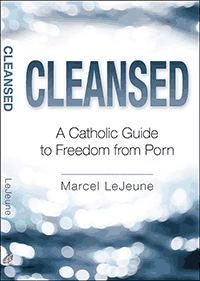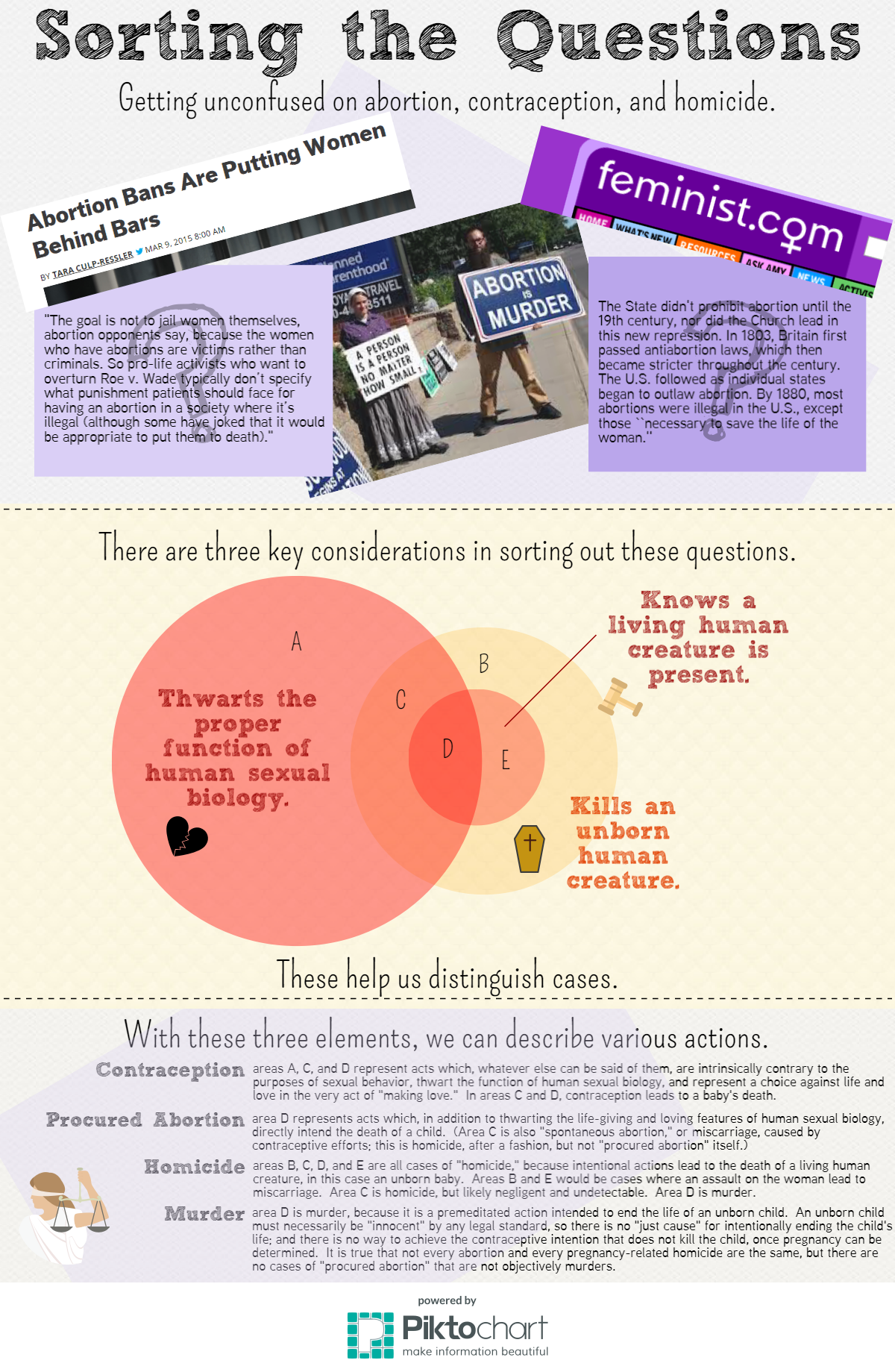I begin and end with a mile-wide, football-field deep, concession: In the present lamentable state of affairs and strictly as a matter of registering a statistical counterweight or protest, I have no objection to what I am about to object to.
In fact, let me develop the logic I have in view, there, first. There are two large stages.
Least-Worst Choices
There are many things which are reasonable “least-worst” choices for some very contingent reason in some very limited, local, immediate circumstances which ought never be advocated on an ongoing basis. I take this as basic for all moral theology and policy discussion. Precisely because we and our situations are not adequately prepared to do what, upon careful reflection, we know would be better, we have to choose with limited information and freedom among “worse” options. Provided the options are not intrinsically evil (and this is why “intrinsically evil” versus “pretty much always wrong” or “really never right under circumstances prevailing now” is a terribly important distinction), it is only prudent to understand which “least-worst” choices are still on the table–even while we strive to do better than any such options.
However, I think it is seriously unwise to advocate publicly for any “least-worst” choice, except perhaps in the narrowest moment of the crisis; and it is definitely wrong to treat a “least-worst” choice as a banner to rally behind, a cause to be promoted. It is a fallback, a sign of failure, and not something whose success should be celebrated (even if we celebrate the defeat of obviously evil options through our “least-worst” choices).
Be Prejudiced!
I also take it that we have an obligation to carefully structure our priorities in moral decision-making, and no less in policy. We harm ourselves and others when we indulge in the notion that policy is an amoral, pragmatic decision that should somehow be “guided by” our “core values.” That language is, as I hope I conveyed by choosing its preferred Clintonian form, an evasion of the responsibilities of discourse on significant matters. “Values” mean decisions about the proportions of things, that is, reasonable assertions of priority that can be tested and affirmed or denied, or they mean only “my preferences right now.”
“Core values” disappear when Apple threatens to boycott Indiana, because political pragmatism and one’s real priorities–one’s actual understanding of what is “real” and has weight–assert themselves over against this phantom. It is therefore essential to be explicit and structural about these real priorities, to expose one’s prejudices quite deliberately, in order to advocate for what is right or to be corrected.
Following on that second, then, I would try to formalize what has gradually become my approach to public decision-making in this way:
Top-Shelf Priorities
At the top level of priority, I must always advocate for the most important practicable good that both is just and can be seen as just; this is not to be distinguished from its immediate mirror image, opposing the most important evil that is both unjust and can be seen to be unjust. Thus I should praise even someone I otherwise oppose insofar as he achieves justice (not just uses words, though words are not nothing), and oppose someone I otherwise praise insofar as he abets injustice.
Nor is “can be seen” a mere matter of polls or popular prejudice; the question is whether I am able to articulate what justice would look like in the matter (this is, for example, why I am full-throated about abortion but slightly inarticulate about usury–because in fact I am not able to articulate justice with regard to the latter as well as the former). If I can make justice intelligible, so someone with power can make it actual, then I have an obligation to do so, no matter what the pragmatics.
But to call some matters “top-shelf” acknowledges, by definition, two things: that there are other priorities as well, and that they are in some sense commensurable with the top-shelf priorities, so that one could not possibly abandon all other considerations. In other words, we are talking about genuine evaluation, here, not “core values.”
Never Play Limbo
When I find myself stymied with regard to a higher priority, I do agree that a “least-worst” decision about what approaches or people to support may be necessary. Of course, silence is often an option–but also often not. In the current climate, silence is as likely to be guilty as prudent.
So where popular delusion seems to favor outright evils, or even just “worse-worst” solutions, I do feel it is necessary to advocate in favor of solutions that are often phrased with “at the very least, you could…” or “if you can’t do this, how can you even defend your existence?” That is, I identify the bottom defensible level, and advocate for at least getting that out of the scrum.
But here is the crucial key, and where one moral (and practical) danger comes in. See, when we begin to advocate for an approach or person or party that we recognize as a “least-worst,” we find ourselves conflicted in our hopes and in our arguments. It is much the same problem as taking counsel of despair (for good reason, it seems when I see it in myself). Having decided that “we are doomed” or that “nothing more can be done, it’s inevitable,” or that “you can’t win on that issue, you have to settle for the best deal on the others,” we are now trapped between “I was wrong” (which makes us feel ashamed, rightly or wrongly) and actually hoping to be right about our negative analysis. Believe me, I am not judging in others something I have not been struggling against for decades.
But think about it: does your “success” in your approach depend on the assumption that pretty much everyone has and will refuse to understand some top-shelf, lowest-common-denominator, fundamentally human reality? You may be right. But ought you not to hope you are not, and if you can find a reason to expect and demand that humans do better, that your friends and neighbors be better, is it not the way of charity to demand that basic humanity from them?
It seems to require a Calvinist prior decision to despair about the possibility of creaturely goodness in human creatures–a decision to believe that it requires constant miraculous intervention for humans to practice even natural justice and common decency–to decide in general that people cannot be asked to behave like the human creatures they cannot fail to be.
Now, once a decision is made, it is folly to pretend against fact. No, let it be upon the heads of those who made it (you may pray for them, but if they choose grave and intrinsic evil you cannot be required to do so, because you cannot be required to hope against the evidence). But let that be wrung from you, not given cheaply.
Because the alternative is to find yourself defending a “least-worst” against all those who hope and demand and call for better. And that is to put yourself in the wrong position, spiritually–and also, if you aim for the actually and durably good, in the wrong position practically.
So the policy that I have only in the past year become aware I was gradually adopting is this:
- Always advocate the top-shelf good, that is, call for and demand just action on the highest priority issue for which you are able to articulate some proximate just action, some corrective to evil that promotes the common good, in the near term.
- When apparently stymied on top-shelf issues, then advocate a temporary and tentative settlement for a “least-worst” if and only if the approach, person, or party you settle for does not advocate against the top-shelf good (or for intrinsic evil).
In other words, it’s not a “least-worst” situation if it involves advocating as a durable good an approach, person, or party actively opposed to the top-shelf good. That’s true even when no immediate action for advancing the top-shelf good seems likely.
Temporary inability to achieve the top-shelf good cannot justify advocating as durably good anything that opposes it.
I will apply this to the Libertarian Party more specifically in a later post, but it should be sufficient to meditate on this for now:
1.4 Personal Relationships Sexual orientation, preference, gender, or gender identity should have no impact on the government’s treatment of individuals, such as in current marriage, child custody, adoption, immigration or military service laws. Government does not have the authority to define, license or restrict personal relationships. Consenting adults should be free to choose their own sexual practices and personal relationships.
1.5 Abortion Recognizing that abortion is a sensitive issue and that people can hold good-faith views on all sides, we believe that government should be kept out of the matter, leaving the question to each person for their conscientious consideration.
(source: Platform | Libertarian Party)
Despite my profound love of the Anglo-American tradition of enumerated liberties against the imagined total reach of government, rooted properly in the natural law tradition that recognizes that each human creature’s transcendent obligations to God and other people, in justice and in charity, individually and in marriage and the Church, are such as demand that no merely secular power claim the right to bind the conscience or impede the performance of these duties; despite my adolescent passion for Locke and Bastiat and von Mises and Hayek, despite my ardency in favor of the “historical best” nature of the United States Constitution and the openness to an honest natural law reading of the Declaration of Independence; despite having for years labelled myself a “civil libertarian” and still defaulting to libertarian arguments and principles whenever a merely American and Constitutional question is in view (though I then often have to correct myself)–despite having longed for decades, literally more than half my life now, to be able to vote for a candidate labelled Libertarian Party or Constitution Party or Taxpayers Party, and having not a few times actually cast sober or protest votes for them–despite all this, I fail to see how it is possible to faithfully relate Christianity to secular regimes and then advocate in favor of the Libertarian Party.
Now, go back and note my concessions, and remember that I wish I could agree with you, friends & family who want the Libertarians to be right.
But…they just aren’t. And I would have to sin by taking counsel of despair for all effectual advocacy, or sin by advocating what I know to be utterly unconscionable, to support them. We’ll have to find another way.







